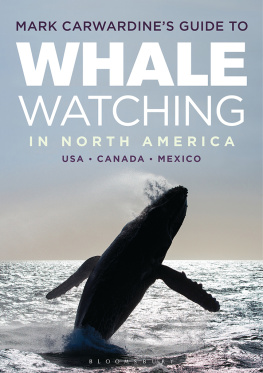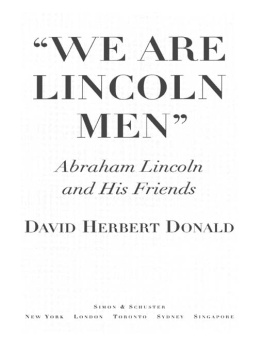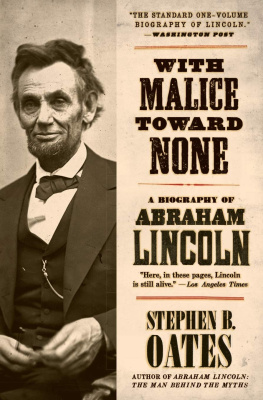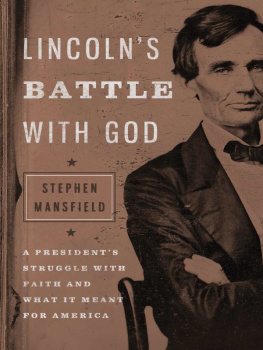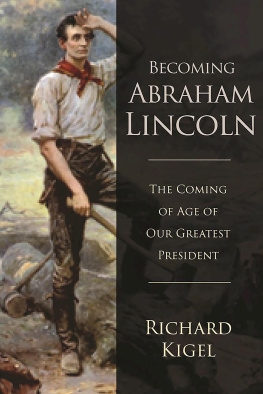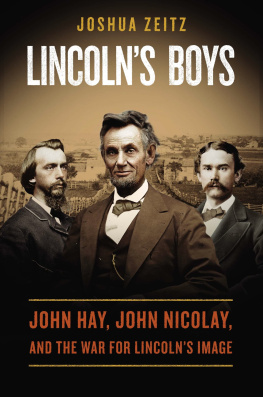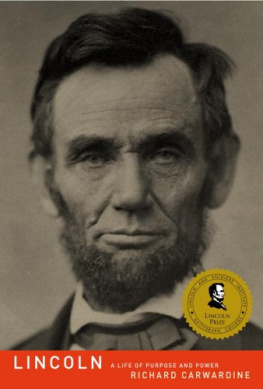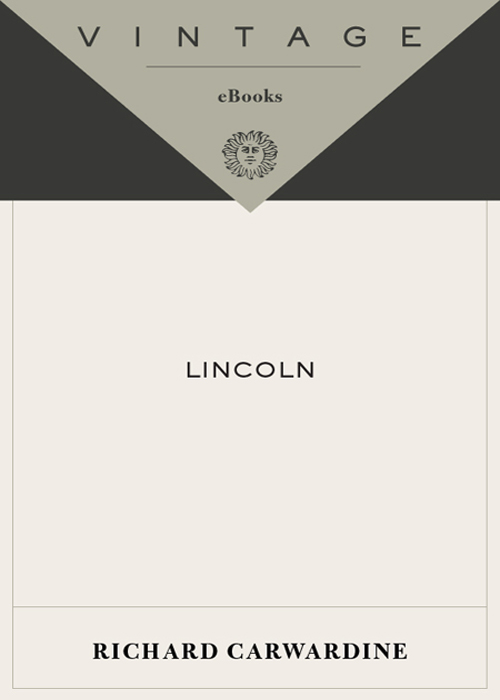

CONTENTS
In memory of Peter Parish, Robert Parry, and Brian Stevens
PREFACE
Abraham Lincoln understood the value of a well-judged disclaimer, so it may be as well to begin by stating what this book does not purport to be. It is not a personal biography of the sixteenth president of the United States. Rather, it is a study of Lincolns political career, one which explores the sources and characteristics of his political authority, both before and after he won national recognition.
To study Lincoln involves peering through a veil of myth and iconography. Any president who successfully steers a nation through a civil war can expect to be decked with the victors laurels, but in Lincolns case garlands for the Unions Savior and Great Emancipator have been interwoven with wreaths for its First Martyr. The nature and timing of Lincolns death, personal and public tragedy though it was, proved perfect for his historical canonization. Legions of Lincoln scholars have recognized this, of course, and have tussled to reveal the enigmatic human being and unvarnished politician encased within the marble figure of national memory. After all, the Unions war president was scarcely a revered national hero at the time: even the loyal pressimpatient, anxious, and occasionally despairingoften questioned his wisdom and suitability for the job. Yet Lincoln still emerges, in so much that is written about him and the wartime Union, as a whollyeven unaccountablyexceptional figure. The remedy does not lie in gratuitous debunking: Lincoln was indeed a talented politician who rose beyond expectation to the supreme challenge of his office. But the key to understanding his rise to power and his achievement as president is to place him firmly into the setting in which he operated and to recognize the external sources of his authority, as much as his own endowments.
In mid-nineteenth-century America, the worlds first mass participatory democracy, political success derived from the effective interplay of three elements: personal drive, the force of public opinion, and the organizing machinery of the political party and other networks of communication. During Lincolns career as a peacetime politician and then as the only United States president to face the challenge of a civil war, his great achievement was to set ambitious but realizable political goals; to fathom the thinking of ordinary citizens and to reach out to them with uncommon assurance; and to hone his impressive skills as a manager of the often unstable and fractious elements that made up the political parties to which he belonged. In what follows I have given particular emphasis to each of these elements, but within a largely narrative framework which recognizes that Lincolns words and actions, and those for whom they were intended, need to be understood within specific and changing contexts.
It seemed to many who watched Lincoln at first hand in Illinois and Washington that his special talent lay in his feel for opinion and in establishing rapport with the public at large. One young Springfield lawyer, convinced that Lincoln was privately a radicalfanatically so, deemed that his strength lay in his never going beyond the People. For George Baker, a clerk in the State Department, the presidents success consisted very much in the confidence and respect he won from the people. Other wiser, greater and as good men might not have won this and then all would have been lost in some of our great crises.1 But public opinion in Illinois and the wider Union comprised many ideological and cultural strands. Understanding the people meant comprehending pluralism. A common theme in what historians have written about Lincoln is the skill with which he made himself attractive, or at least indispensable, to a broad range of conservative, moderate, and radical elements withinsuccessivelythe Whig party, the antebellum Republican coalition, and the wartime Union. Less well appreciated is his remarkable success in reaching out to what was the most powerful of all the eras subcultures, evangelical Protestantism. Mainstream evangelicals did much to shape the style, substance, and rhetoric of the mass participatory politics that reached their maturity in America at about the same time that Lincoln arrived at his. In antebellum Illinois, as elsewhere, the political fault lines commonly coincided with religious and ethnic ones. Alert to the power of religious opinion, Lincoln fused appeals to Protestant millennialism and Enlightenment rationalism. The orthodox Protestantism which underpinned the ethical stance of Republicans and much of the wartime Union coalition, and which flourished in New England and its Yankee diaspora, was not Lincolns religious faith. But he shrewdly harnessed the power of the most politically influential and energetic members of that constituency, both to win the presidency and to rally support behind his national vision and the wars purposes.
Half of this study addresses Lincolns pre-presidential career. The first chapter explores the roots of Lincolns political ambition, examining his early life, the sources of his ideas, his alienation from the land, his seizing of the opportunities offered by the emerging market economy, and his evolution by 1840 into a leading Illinois Whig. His effectiveness in state politics and his election to the United States Congress, where he served from 1847 to 1849, signaled his political ability, but only hinted at the more serious and morally engaged figure that reentered politics in 1854 after the repeal of the Missouri Compromise opened the door to slaverys westward expansion into Kansas-Nebraska. Establishing the philosophical sources of that moral engagement demands a discussion of Lincolns evolving religious views.
Chapter 2 examines how during the mid-1850s Lincoln became a chief beneficiary of the swirling public opinion that, acting as the arbiter of political power, destabilized the old parties and opened the door to realignment. Through several seasons of public speaking Lincolns steady advocacy of an antislavery argument did much to shape public sentiment and to effect the displacement of the Whigs by a broader-based Republican party that aspired to national power. Within the mix of ideological, ethnic, and religious loyalties amongst Illinois voters, Yankee influence came to preponderate through the decade. In his debates in 1858 with his great rival, United States Senator Stephen A. Douglas, Lincoln earnestly sought to harness antislavery religious sensibilities not only in the Yankee-dominated settlements but as widely as possible across the state, and showed his grasp of the dynamics of the emergent mass democracy that made America politically unique.
Two years after Lincolns narrow defeat at Douglass hands, the power of a crusading party unlocked the door of the presidency. In the interplay of the elements shaping Lincolns antebellum career, it was the operations of party which did most to bring about his remarkable political ascent in 1860. Chapter 3 shows how his winning the presidential nomination demanded the confidence of a Republican organization whose national leadership had several other names from which to choose. Once Lincoln had been selected, his reaching office was almost completely dependent upon his partys exertions. Party organizations were essential to effective campaigning, their controls over patronage providing the necessary levers of discipline and unity. The chapter examines the posture of a party that was an institutional and philosophical amalgam. Economic interest and bitter anti-southern feeling were important elements of the Republican mix. Equally important, the party was an expression of the reform-minded, optimistic Protestant evangelicalism unleashed by the religious movement known as the Second Great Awakening. Lincolns candidacy served its purposes well, for in his blend of constitutional conservativism and high-minded, even Yankee-style moralism, they had a champion behind whom both pragmatic coalition-builders and high-minded crusaders could enthusiastically rally.
Next page

